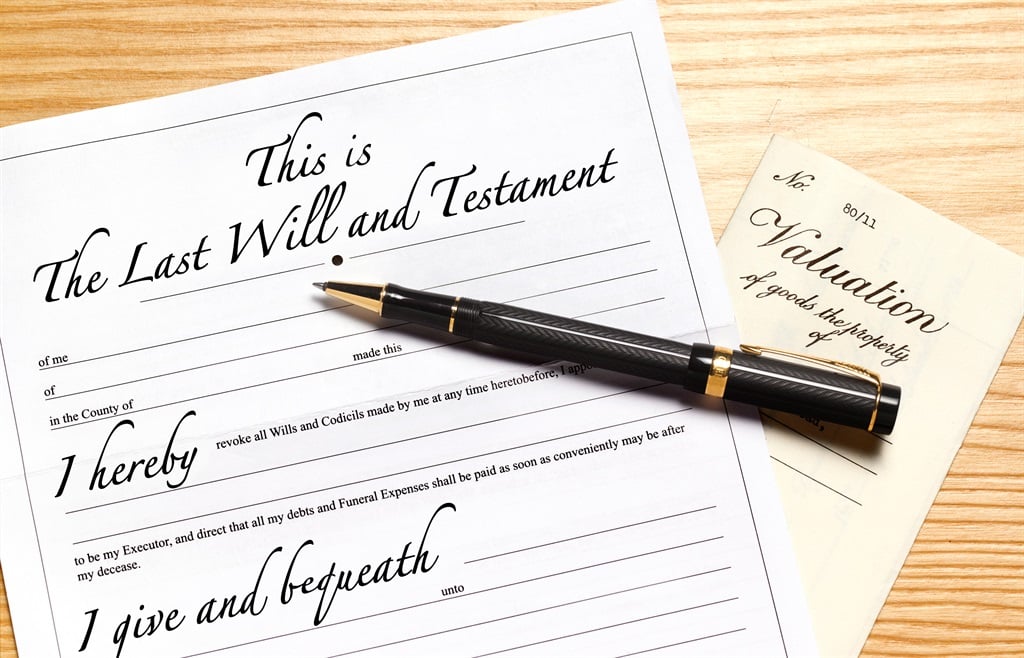
For those left behind when a loved one dies, winding up an estate can seem overwhelming and full of unanswered questions. Rumana Mahomed breaks down the process to make it a little easier.
- For more financial stories, go to the News24 Business front page.
We should all have the confidence to play the 'what if' game, knowing that we can succeed regardless of the unknowns.
In this game, the following are guaranteed:
- We are all going to die.
- Each of our estates, large or small, is going to be subjected to a legal process.
- This process is administratively burdensome and, depending on the circumstances of each estate, can be extremely complex.
Your goal may be simply to ensure that you, or those you leave behind, are supported by a legal professional or an accredited fiduciary practitioner, with expertise in the laws and the administration processes of winding up an estate.
Such support will definitely help you and those you leave behind navigate this process more effectively and expeditiously.
But even with support, you may still have concerns around the 'what if' and the issues that could arise if you or a loved were to pass on today.
You should therefore start by understanding the process involved in winding up an estate – the first step in succeeding at the 'what if' game.
One important thing to note is that in South Africa, the Master of the High Court separates deceased estates into two categories based on values:
- Estates valued at less than R250 000 which do not need to go through the full winding up process; and
- Estates valued at more than R250 000.
Next up are the five broad steps involved in winding up an estate valued at more than R250 000.
Step 1: Report the estate
The estate must be reported to the Office of the Master of the High Court nearest to where the deceased resided. You must lodge the following documents:
- The original will (if there is one);
- A certified copy of the death certificate; and
- Various other supporting documents and forms.
The executor needs to obtain the Letters of Executorship or Letters of Authority (for an estate less than R250 000) from the Master of the High Court and, depending on the circumstances in the estate, the assistance of a suitably qualified professional may be required.
Step 2: Open the estate account
Next, the executor needs to open the estate late bank account into which the deceased’s money can be paid and from which debts can be settled.
Then the executor will need to notify the debtors and creditors by way of an advert and by contacting them directly.
The executor should also notify the South African Revenue Service (SARS).
After this the executor needs to investigate, verify and value each of the assets the deceased owned and any liabilities they had.
Any outstanding debts the deceased owed will need to be settled. This may involve selling assets to cover the debts.
Step 3: Prepare the L&D account
The executor then needs to prepare and lodge a liquidation and distribution account, based on the information collated in step 2. This account sets out what is in the estate and what it owes. The account must, within six months of the executor being appointed, be lodged with the Master of the High Court for it to examine and approve.
Step 4: Allow for objections
The executor then needs to provide all interested parties, by way of a second advert, an opportunity to view - and within 21 days lodge their objections to the approved liquidation and distribution account.
Bear in mind that that SARS is not limited to this time frame.
If there are no objections to the account, the Master of the High Court will then allow the executor, after settling any outstanding debts and taxes, to distribute the remaining assets in the estate to the beneficiaries according to the will or the intestate succession laws.
Step 5: Answer remaining queries
The final step to close off the estate is to comply with the remaining queries raised by the Master and lodge the proof that the inheritances were received with the Master of the High Court.
If you understand this process of winding up an estate, you can make decisions during your life that will positively influence an inevitable process which unfolds when you are no longer here - and help those you leave behind answer some of those 'what ifs'.
This article was first published on SmartAboutMoney.co.za, an initiative by the Association for Savings and Investment South Africa (ASISA).
News24 encourages freedom of speech and the expression of diverse views. The views of columnists published on News24 are therefore their own and do not necessarily represent the views of News24.
News24 cannot be held liable for any investment decisions made based on the advice given by independent financial service providers. Under the ECT Act and to the fullest extent possible under the applicable law, News24 disclaims all responsibility or liability for any damages whatsoever resulting from the use of this site in any manner.




 Publications
Publications
 Partners
Partners












